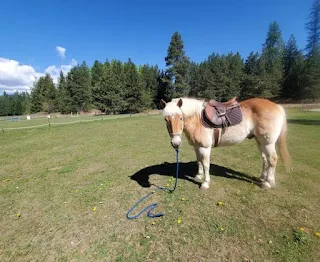Dear: Sam Horse Help Horsemanship Series
Is the horse mentally present?
The Remote Horse Coach discusses tips into recognizing horse behavior during the interaction reflecting the horse's mental presence, thinking, learning and ability to retain.
Click the link to watch on the Alternative Horsemanship YouTube Channel.
#alternativehorsemanship #RemoteHorseCoach #dearsamhorseseries #horsetraining #horse #horses #horselearning #horsecare #horsehelp #horseproblems #horsebehavior







.png)








.png)

































